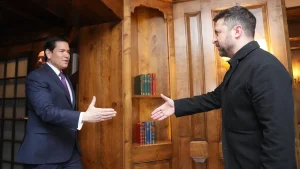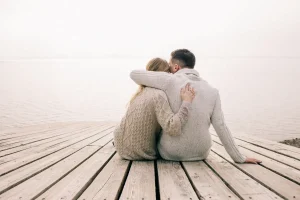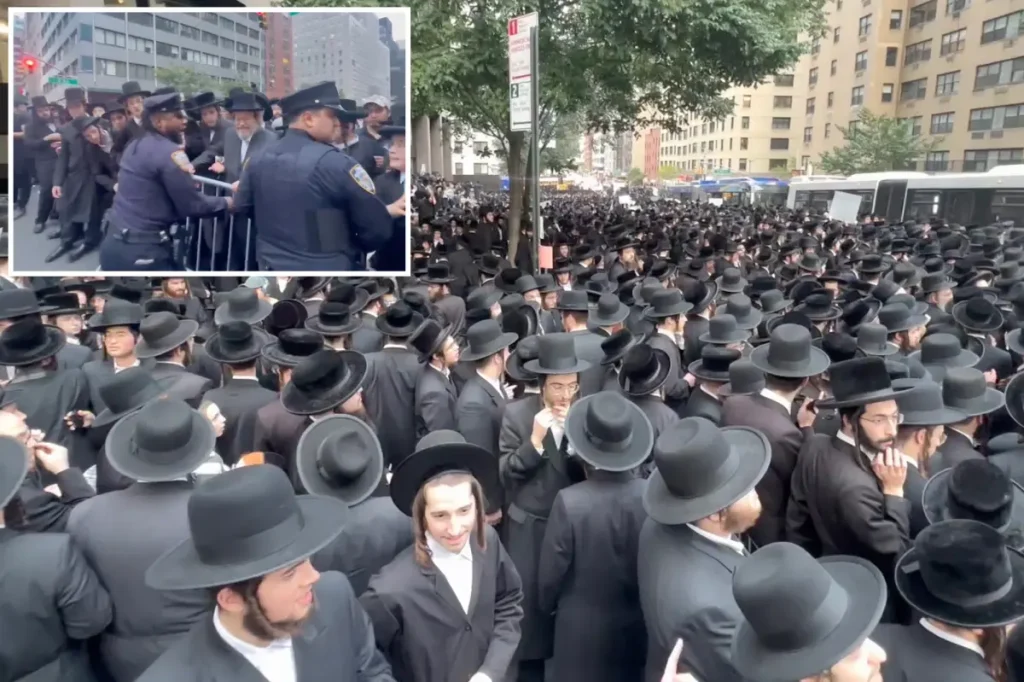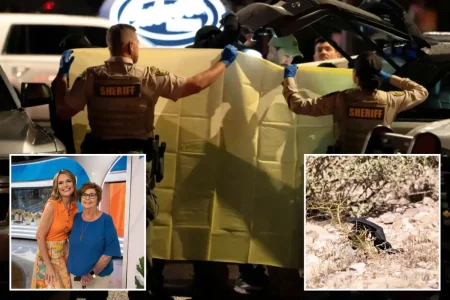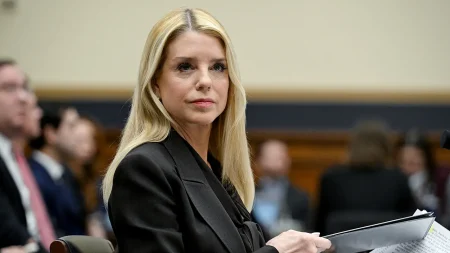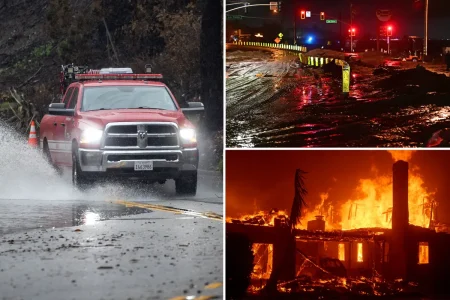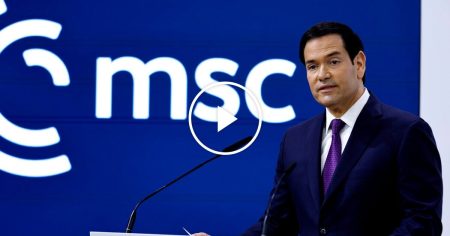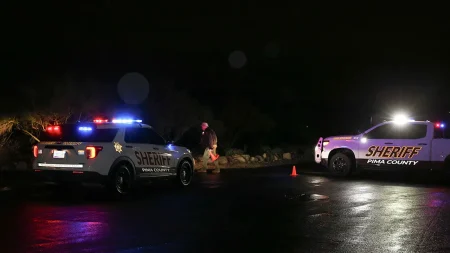Ultra-Orthodox Jews Rally in New York Against Israeli Military Service Mandate
In a remarkable display of solidarity and concern, thousands of ultra-Orthodox Jews gathered around the Israeli consulate in New York City last Sunday, creating a sea of traditional black coats and hats that stretched for blocks. The demonstration centered on their opposition to Israel’s potential elimination of the religious exemption from military service that has protected yeshiva students since Israel’s founding in 1948. This massive turnout, drawing from various Orthodox communities across the New York metropolitan area, underscored the deeply personal stakes for these deeply religious communities. The Central Rabbinical Congress of the U.S.A. and Canada helped orchestrate the event, but the true driving force appeared to be grassroots concern from families with ties to Israel and a commitment to preserving their way of life.
The protest highlighted the complex relationship between Israel and America’s ultra-Orthodox Jewish communities, particularly the influential Satmar Hasidic groups. In a rare show of unity, the leaders of two rival Satmar factions both called for their followers to participate, demonstrating how this issue transcends internal community politics. For many attendees, the demonstration wasn’t about opposing Israel itself, but rather advocating for religious freedom within the Jewish state. Their presence outside the consulate, just a block from the United Nations, sent a powerful message about their desire to maintain the traditional exemption that has allowed generations of religious scholars to dedicate themselves fully to Torah study without military interruption. The gathering reflected how deeply American ultra-Orthodox communities remain invested in religious policy decisions taking place thousands of miles away.
The controversy stems from Israel’s Supreme Court ruling last year ordering the government to begin drafting ultra-Orthodox men into the military, potentially ending an arrangement that dates back to Israel’s establishment. For ultra-Orthodox Jews, known in Hebrew as Haredim, this exemption has been fundamental to their way of life, allowing young men to pursue intensive religious education at yeshivas instead of serving in the military like most other Jewish Israelis. The community fears that military service would expose their youth to secular influences and disrupt their religious development at a critical age. Rabbi Moishe Indig, a Satmar community leader present at the protest, expressed surprise at the massive turnout, suggesting that concern over this issue has been building steadily within the community and finally reached a tipping point that prompted this extraordinary public demonstration.
The debate reflects broader tensions within Israeli society about shared responsibility and national service. Many secular and modern Orthodox Israelis have long argued that the military exemption creates an unfair burden, particularly as the ultra-Orthodox population continues to grow rapidly. They contend that all citizens should contribute to national defense, especially during times of conflict like the current war in Gaza. The ultra-Orthodox counter that their religious study constitutes a different but equally valuable form of service to the Jewish people, providing spiritual protection through prayer and scholarship. This philosophical divide has only deepened since the October 7 attacks and subsequent war, with many Israelis questioning longstanding arrangements that have allowed certain segments of society to avoid military service while others make tremendous sacrifices.
For the American ultra-Orthodox demonstrators, the protest also reflected appreciation for religious freedoms they enjoy in the United States, where they can practice their faith and educate their children according to their traditions without government interference. Rabbi Indig explicitly voiced gratitude to American authorities “for giving us the freedom and liberty to be able to live free and have our children go to school and study and learn the Torah.” This sentiment reveals an interesting dynamic where these deeply religious Jewish communities find certain aspects of their religious life more protected in America than in the Jewish state. Their public demonstration serves as both a plea to Israeli authorities and a reminder of the diverse perspectives within global Judaism regarding the proper relationship between religious observance and civic obligations.
The gathering in New York represents just one chapter in an ongoing debate about religious exemptions and civic duties that will likely continue to shape Israeli politics and society for years to come. As Israel grapples with existential security challenges and internal cultural divisions, the question of military service for the ultra-Orthodox touches on fundamental issues of Jewish identity, religious freedom, and collective responsibility. For the thousands who stood outside the Israeli consulate that Sunday, the issue transcends politics—it’s about preserving a way of life centered on religious study and observance that they believe has sustained Jewish tradition through centuries of hardship and displacement. Whatever policy Israel ultimately adopts, the demonstration made clear that decisions about military service requirements will resonate far beyond Israel’s borders, affecting Jewish communities worldwide who remain deeply invested in the spiritual character of the Jewish state.
